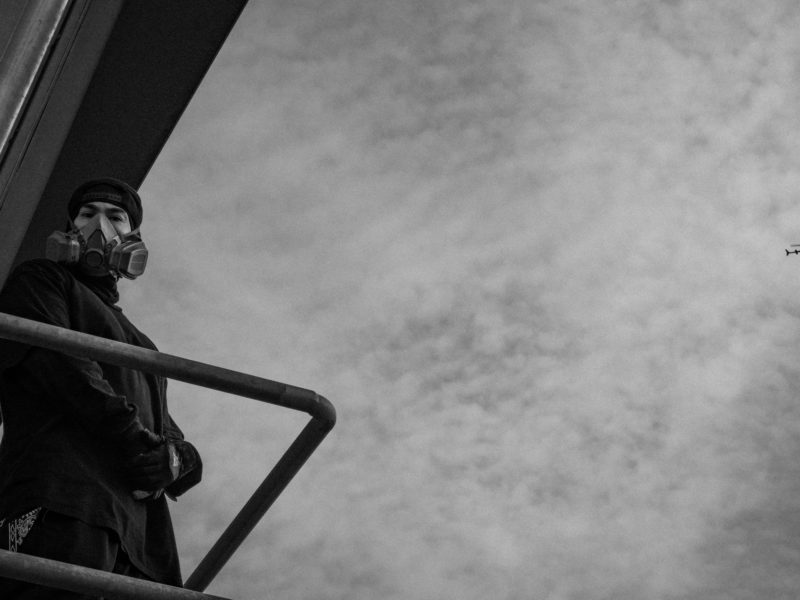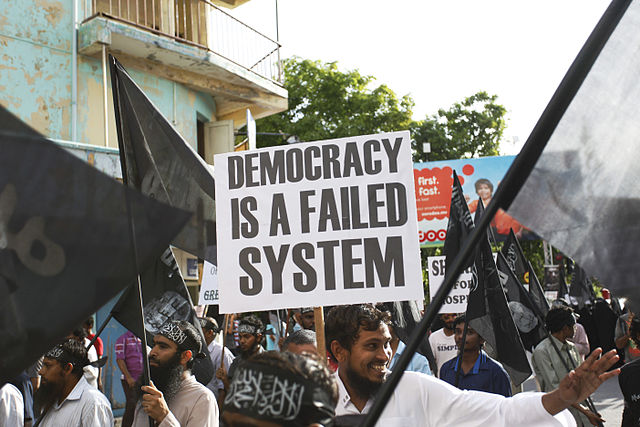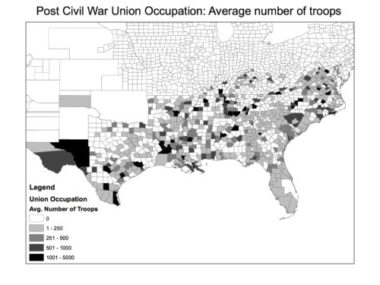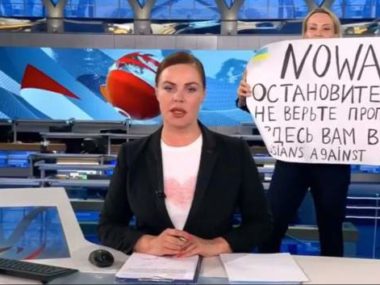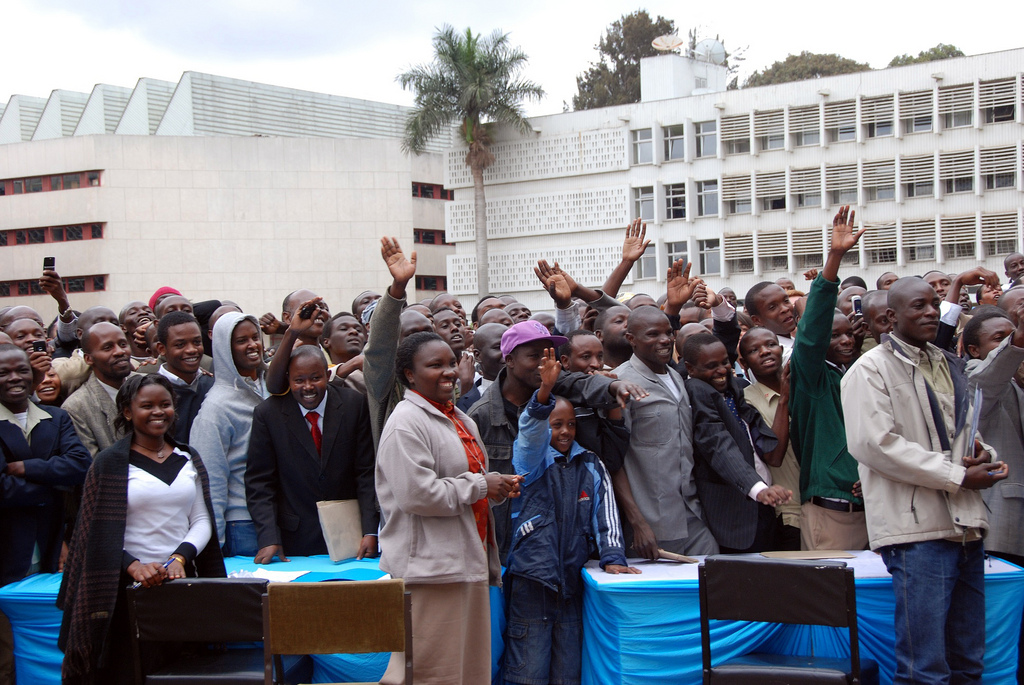By Danielle Lupton, David T. Burbach, and Lindsay P. Cohn
Over the past two weeks, Department of Homeland Security (DHS) forces have violently quelled peaceful protests in Portland. While the governor of Oregon announced that some federal forces are leaving the city, the president insisted they would return if necessary, and recently deployed federal law enforcement into other cities across the nation.
Trump has created, in effect, an internal federal security force with little accountability beyond the executive branch. These types of security forces are common in authoritarian regimes that need to maintain coercive control over the population while hedging against possibly disloyal militaries. Democracies generally do not have such forces, as coercive control of the population is less necessary and law enforcement is generally less militarized. So why is this happening in the United States? We explore several possibilities.
It’s a diversionary tactic.
The use of federal forces could be an attempt by the administration to shift the narrative away from the troubled economy and the failures of their COVID-19 response—classic diversionary war logic applied domestically. Media coverage rarely changes what people think, but it does shape what they think about.
Trump’s approval ratings and election prospects have been hobbled by strong dissatisfaction with his handling of the pandemic, even among Republicans. If news coverage shifts towards issues where Trump scores higher, such as “law and order,” it could boost his standing. Insider accounts suggest Trump is indeed eager for heavy TV coverage of the crackdown.
It’s meant to drum up his base and de-legitimize the opposition.
Whether or not diversion is a goal, the choice of where to crackdown is no coincidence. These interventions are targeting Democratic-led cities, not Republican-controlled areas. Federal forces were also conspicuously absent when armed right-wing protesters occupied the Michigan Capitol building. And they’re being deployed against people protesting police abuses, veneration of Confederate monuments, and systemic racism. This is likely meant to activate racial resentment and fear among Trump’s older, whiter, suburban and rural base to keep them motivated despite the pandemic.
The message is that, while “Re-open America” protesters were simply exercising their rights, Black Lives Matter and related protesters are not part of the normal democratic political process—but outside of it—and therefore require forceful suppression. The words used to describe these protests—terrorism, siege, chaos—are designed to de-legitimize their cause.
Analysis shows that voters who chose Obama in 2012 and Trump in 2016—who were overwhelmingly white—hold high levels of racial resentment. What made the difference between the two elections is that the 2016 campaign brought identity issues to the forefront whereas both Obama and Romney emphasized economic policy in 2012. Jarring as it may be to hear the president speak of “American carnage,” call a US city “worse than Afghanistan,” or claim that Democrats will “destroy the suburbs,” such rhetoric resonates with a significant group of voters.
Trump is openly using this narrative of fear in the run-up to the election, claiming: “you won’t be safe in Joe Biden’s America.” It may seem odd for the incumbent to advertise scenes of mayhem happening under his own watch, but the message is that violence by leftists and racial minorities is the natural state of American cities, kept in check only by forceful imposition of “law and order.” A federal response that escalates protests plays into this strategy. Trump’s rhetoric is reminiscent of autocratic leaders during the 2011 Arab Spring uprising who tried to present their citizens with a binary choice: “Me, or the chaos.”
Political polarization makes this strategy all the more appealing. Negative partisanship—disliking the other party as an end in itself—is so strong that Trump can help himself merely by attacking Democratic mayors and governors. The crackdown is also meant to imply that Democratic officials are incapable of maintaining “peace” and “order” (highly racialized terms), or perhaps even deliberately intend to spread the “chaos” of the cities to the suburbs.
It’s a trial balloon for election interference.
It is also possible that Trump is testing the waters to see how much push back he would face for deploying federal agents to deal with “unrest” associated with the upcoming election.
The president’s recent tweets about delaying the vote past November 3rd have reignited concern that he will try to interfere with the election. While there are a number of ways he might do this, it is a risky strategy. He and his advisors may prefer to test the likely effects on voters, members of Congress, and federal agents beforehand.
Several potential forms of “legal” election tampering are of concern, including suppressing minorities and the poor through voter ID laws, closing polling stations, and forcing in-person voting during a pandemic.
But the deployments in Portland and elsewhere raise concerns of the potential for a more insidious type of election interference. What if there are protests near or associated with the election? Could the president use this as an excuse to send in federal law enforcement, or possibly even troops, to “restore law and order” at the expense of closing the polling stations, for example?
What if the president avoids direct interference on election day, but throws doubt on the validity of the election by claiming rampant fraud, foreign meddling, or other irregularities? If this provoked further protest and counter-protest, he could then send in federal forces to put down antagonistic protests and protect those supporting him. This could be designed to generate calls to re-do the election, or simply to create significant division in the country over the legitimacy of a Biden victory, making transition and governance difficult.
In any such case, a trial run would help to determine the public reaction and the agencies that would have to carry it out. Does the president’s base like it? Do Congressional Republicans push back? Do the agencies involved shirk or hedge? Can he rely on the military?
What does this mean for the future of American democracy?
Diversionary tactics are difficult to pull off and can backfire. Polls show Trump’s handling of the protests is almost as unpopular as the COVID response. Even voters sympathetic to the Trump administration are unhappy with the brutal crackdown, and it certainly is not broadening his appeal beyond his base.
If testing the waters for November is part of the calculus, the results are mixed. While federal agents have shown little reluctance to use violence against unarmed demonstrators and to arrest people without probable cause, some in DHS are worried about the optics. Congressional Republicans have been largely silent on this issue, but pushed back against the idea of postponing the election.
Regardless of their effect on the election, these tactics can have long-term consequences for American democracy. The creation of an armed, centralized internal security force essentially accountable only to the president is an ominous sign, as these types of forces are most often found in authoritarian regimes. The open challenging of norms of federalism and subsidiarity is troubling. And the fact that this goes well beyond normal rhetorical criticism of political opponents into delegitimizing, and possibly even criminalizing, them is corrosive to democratic governance. Democracy depends in part on people’s ability to agree to a process for determining the rules, precisely because they cannot agree on what the rules should be. But if the faction in power instead chooses to define those who disagree as outside the political process, there is no longer democracy. There is absolutism.
David T. Burbach (@dburbach) and Lindsay P. Cohn (@lindsaypcohn) are associate professors of national security affairs at the U.S. Naval War College. The views they express are their own and do not represent the position of any organ of the U.S. government. Danielle L. Lupton (@ProfLupton) is an associate professor of political science at Colgate University and the author of “Reputation for Resolve: How Leaders Signal Determination in International Politics” (Cornell University Press, 2020).

